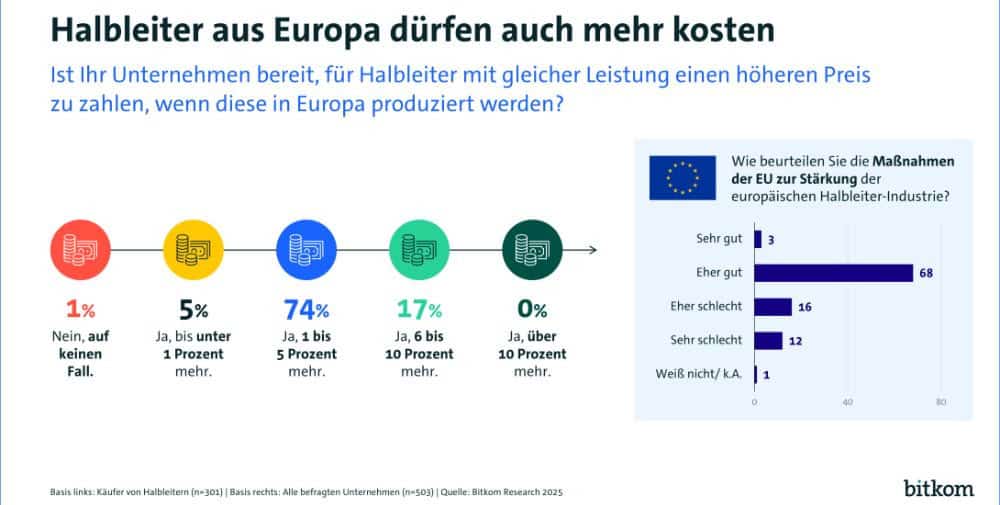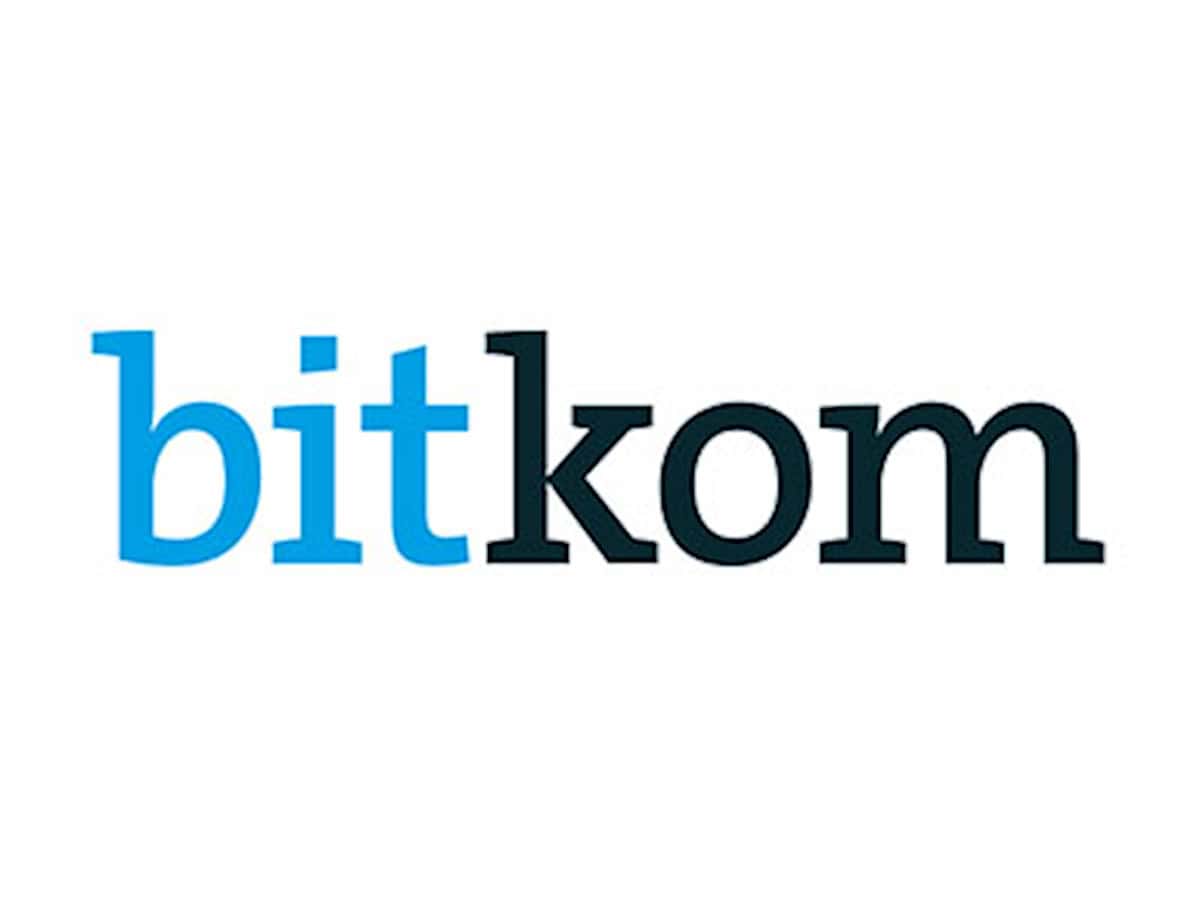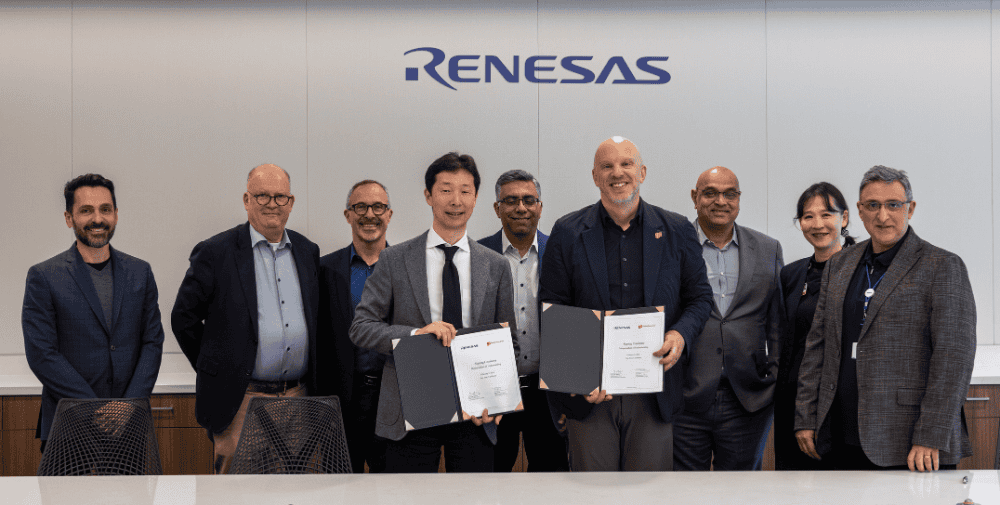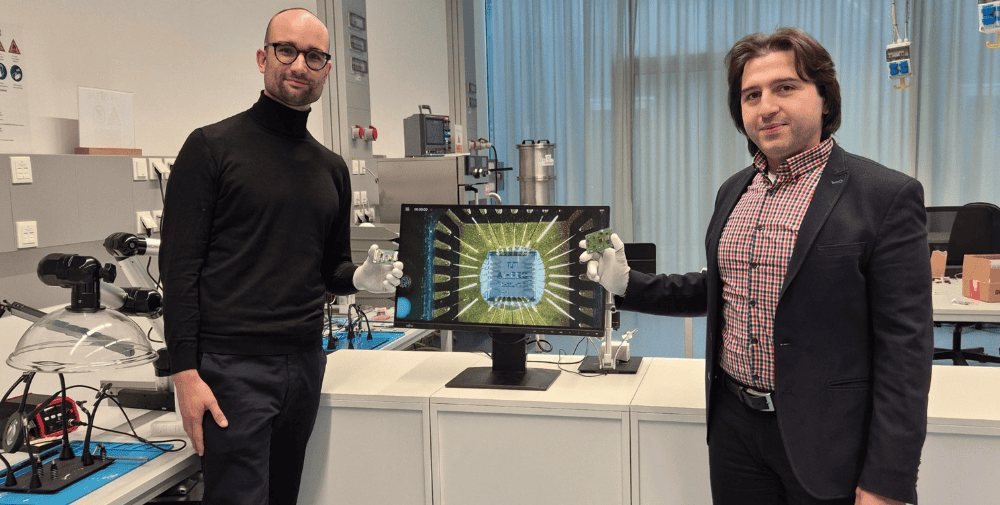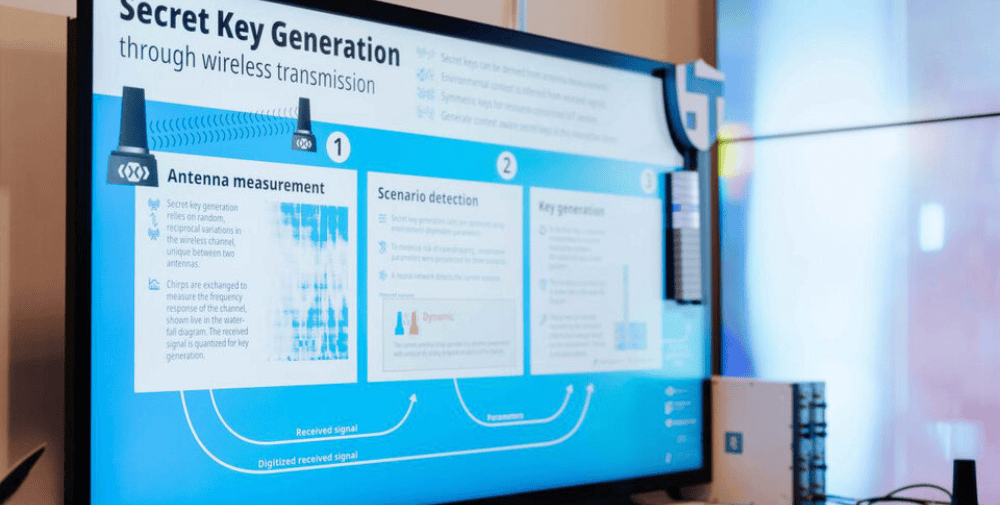October 30, 2025. In view of the uncertain supply of semiconductors from abroad, the companies concerned increasingly want secure sources of supply from Germany and Europe. A large majority would also be prepared to pay more for this, provided the performance of the semiconductors is not worse than that of their foreign competitors – but only within certain limits. Eight out of ten (79%) of German companies buying semiconductors this year would pay up to 5% more if they were produced in Europe. 17 percent would even pay up to 10 percent more, meaning that a total of 96 percent are willing to pay more. These are the results of a representative survey conducted on behalf of the digital association Bitkom among 503 companies with 20 or more employees from the manufacturing, IT and telecommunications industries – sectors in which semiconductors are heavily used.
Categories
